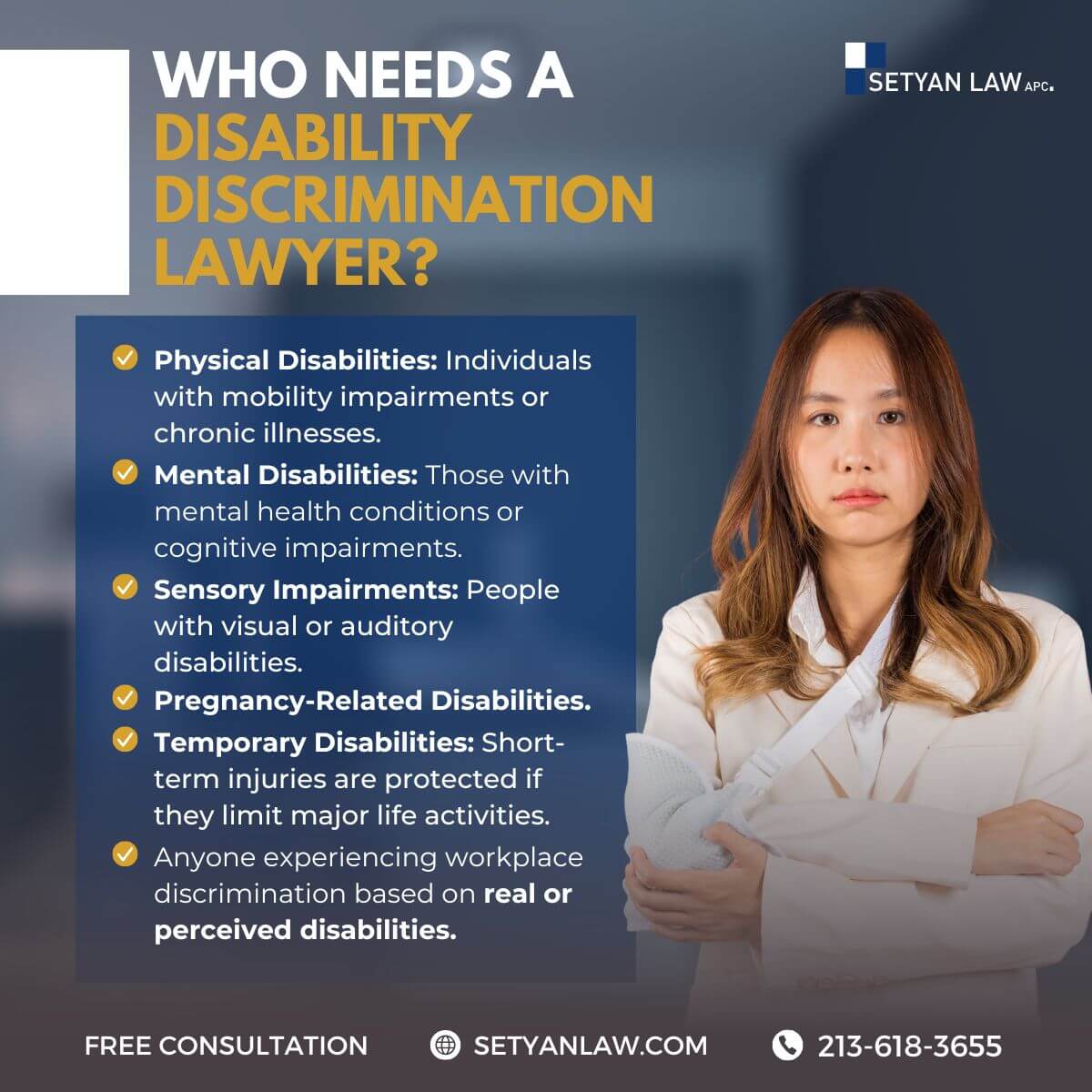Updated November 18, 2025
California FMLA Law and Medical Leave
Returning to work after taking FMLA California law protected leave should be a straightforward process, but for many employees, the reality is quite different. You expect to return to the same position with identical hours and pay, only to find your schedule suddenly and dramatically reduced. Is this legal? Can your employer cut your hours after you return from medical leave?
While both federal and state laws provide important protections for employees who take medical leave, the answer isn't always clear-cut. Employers sometimes justify hour reductions by claiming business necessity or restructuring needs. However, when these changes happen immediately following your return from medical leave, they may actually constitute illegal retaliation.
This guide examines your rights under both the Family and Medical Leave Act (FMLA) and California Family Rights Act (CFRA), explains when hour reductions might cross legal boundaries, and outlines specific steps you can take if you believe your employer is retaliating against you after medical leave.
Understanding FMLA and CFRA in California
California workers benefit from both federal and state protections during medical and family absences. Before considering whether your employer can legally reduce your hours after leave, you need to understand these foundational laws that safeguard your job.
What is FMLA and who qualifies?
The Family and Medical Leave Act (FMLA) provides eligible employees with unpaid, job-protected leave for specific family and medical reasons. This federal law ensures you can take necessary time off without losing your position.
To qualify for FMLA in California, you must meet several criteria:
- Work for an employer with 50 or more employees within a 75-mile radius [1]
- Have been employed for at least 12 months (need not be consecutive)
- Have worked at least 1,250 hours during the 12 months prior to your leave [1]
FMLA covers leave for your own serious health condition, caring for a family member with a serious health condition, bonding with a newborn or newly placed child, and certain military family obligations [1]. Additionally, FMLA provides up to 26 weeks of leave in a 12-month period for military caregiver leave [2].
How CFRA differs from FMLA
The California Family Rights Act (CFRA) runs parallel to FMLA but offers broader protections in several important ways.
First, CFRA applies to smaller workplaces, covering employers with just 5 or more employees versus FMLA's 50-employee threshold [3]. This significantly expands job protection for California workers.
Second, CFRA covers more family relationships. Unlike FMLA, California law allows you to take leave to care for domestic partners, grandparents, grandchildren, siblings, and parents-in-law [4]. CFRA even includes a "designated person" option, allowing you to name one person with whom you have a family-like relationship [5].
Third, pregnancy is handled differently. Under FMLA, pregnancy itself qualifies as a serious health condition [6]. In contrast, California provides separate Pregnancy Disability Leave (PDL) of up to 4 months for pregnancy-related conditions [3]. This means California parents can potentially stack PDL with CFRA bonding leave for longer protected time off.
How much leave is protected under each law
Both FMLA and CFRA provide up to 12 weeks of job-protected leave within a 12-month period [5]. For most qualifying reasons, these leaves run concurrently – meaning the same time off counts against both your FMLA and CFRA entitlements simultaneously [7].
Nevertheless, there are situations where the leaves might not overlap. For instance, since pregnancy is handled differently, a California employee might use 12 weeks of FMLA along with PDL during pregnancy, then take an additional 12 weeks of CFRA leave for bonding after birth [6]. Furthermore, FMLA offers up to 26 weeks specifically for military caregiver leave [4].
It's important to note that neither FMLA nor CFRA guarantees paid time off. Nonetheless, you may receive income through:
- State Disability Insurance or Paid Family Leave benefits
- Accrued paid time off (vacation or sick leave)
- Employer-provided paid leave benefits [5]
During your protected leave, your employer must maintain your health benefits as if you were still working [3]. Upon return, you're entitled to reinstatement to the same or a comparable position with equivalent pay, benefits, and working conditions – a critical protection we'll explore further in subsequent sections.
It’s always best to consult a qualified Medical Condition Discrimination Attorney regarding your case before you file. Employment law has many pitfalls and an attorney can help you navigate past them safely. Sam Setyan will review your grievance, tell you your options, and guide you to the most favorable outcome possible. It’s your call.
Call 213-618-3655 for a free consultation.
Can Your Employer Cut Your Hours After Medical Leave?
The cornerstone of both federal and state medical leave laws is the guarantee that you'll have a job to return to when your leave ends. Yet many California employees discover their work schedules significantly altered upon return—often with fewer hours and consequently less pay. Understanding your legal protections can help determine whether such changes cross the line into illegal territory.
What the law says about job reinstatement
Under FMLA California law, your employer must restore you to either the same position you held before leave or an "equivalent" one. An equivalent position isn't just about maintaining your job title—it must be virtually identical to your original position in terms of pay, benefits, work schedule, shift, geographical location, and overall working conditions [5].
The California Family Rights Act (CFRA) provides similar reinstatement rights, defining a "comparable position" as one that is equivalent to your former role in terms of pay, benefits, shift, schedule, geographic location, and working conditions, including privileges, perquisites, and status [8].
Essentially, your employer cannot use your medical leave as an opportunity to demote you, reduce your responsibilities, or alter your work arrangement in ways that diminish your employment status. Your right to reinstatement applies regardless of whether your employer had to replace you or restructure your position during your absence [8].
When hour reductions may be legal
Despite these protections, there are limited circumstances under which employers can legally reduce your hours after medical leave:
Business necessity unrelated to leave: If your employer can prove you would not have been employed at the time of reinstatement due to legitimate business reasons unrelated to your leave, they may not need to restore your previous schedule [8]. For instance, if your entire department experienced hour reductions due to economic conditions affecting everyone equally.
Position elimination: If your shift was eliminated or overtime was decreased across the board, you wouldn't be entitled to return to the original shift or overtime hours [8].
"Key employee" exception: For highly compensated employees (top 10% of pay scale within 75 miles of worksite), reinstatement might be denied if it would cause "substantial and grievous economic injury" to the company [9].
Voluntary request: If you personally requested reduced hours upon return, the change would be legal—although employers should document such requests carefully [10].
According to a DOL opinion letter, employees may actually use FMLA leave to reduce their work hours indefinitely if they have an FMLA-qualifying reason, as long as they don't exhaust their FMLA allotment [11].
Examples of illegal hour cuts
The Department of Labor provides clear examples of when hour reductions constitute illegal retaliation or interference with FMLA rights:
One case involved an employee named Deborah who used FMLA leave for migraines. Upon returning to work after her third instance of leave, her manager cut her schedule from 40 to 20 hours weekly, saying they needed "workers who will show up every day." This reduction directly tied to her FMLA use constituted illegal retaliation [12].
Another common scenario involves employers claiming a business necessity for reducing hours without providing evidence. In one court case (Jones v. Aaron's Inc.), an employee's hours were reduced after FMLA leave, which the employer claimed was at her request. Because the employer couldn't substantiate this claim, the court found the reduction to be an adverse employment action violating FMLA [10].
Hour cuts that occur immediately upon return from leave—particularly when they affect only employees who took leave and not others in similar positions—typically raise red flags. Notably, using an employee's FMLA leave as a negative factor in employment decisions constitutes prohibited conduct under federal law [13].
Remember that even seemingly neutral policies like "no-fault" attendance systems cannot be used to penalize employees for FMLA-protected absences, as this would interfere with their rights under the law [12].
Recognizing Signs of Retaliation
Many California employees face subtle workplace changes after returning from medical leave that may constitute illegal retaliation. Recognizing these warning signs early can help protect your rights under FMLA California law.
Reduction in hours as punishment
Hour reductions following medical leave often serve as a common form of employer retaliation. In one documented case, an employee's schedule was dramatically cut from 30-35 hours weekly to merely 12 hours upon returning from FMLA leave [14]. Meanwhile, the employer hired two new employees, claiming they were "overstaffed" – a contradiction to the employee's original job description of 20-25 hours [14].
This pattern is recognized by the Department of Labor as a potential FMLA violation. Specifically, "changing the number of shifts assigned to the employee" after FMLA leave constitutes a possible violation of employee rights [5]. Employers sometimes disguise retaliatory hour cuts as "concern for your health" or "business necessity," yet the timing reveals their true motivation.
Negative performance reviews post-leave
Suddenly receiving poor evaluations after returning from leave represents another red flag. The Department of Labor explicitly identifies "writing up the employee for missing work when using FMLA leave" and "assessing negative attendance points for FMLA leave use" as violations [5].
Moreover, employers must adjust performance expectations to account for FMLA absences. As confirmed by a 7th Circuit Court ruling, if an employee was available only 80% of their normal schedule due to protected leave, the employer cannot expect 100% of the workload to be completed [15]. Insisting on full productivity while knowing an employee took protected leave is unlawful.
Courts examine suspicious timing closely – if negative reviews appear immediately after leave, particularly without prior documentation of performance issues, this suggests potential retaliation [16].
Changes in job duties or demotion
Subtle modifications to your responsibilities can likewise signal illegal retaliation. Watch for these warning signs upon return:
- Being excluded from meetings or projects you previously handled
- Losing managerial duties while maintaining the same title
- Receiving less desirable assignments or shifts
- Being transferred to a location outside your normal commuting area [5]
A Minnesota federal court ruled that even "modest" changes to job duties and work hours after FMLA leave could constitute interference with employee rights [17]. As stated by law, an equivalent position must be "virtually identical" in terms of responsibilities, requiring "substantially equivalent skill, effort, responsibility, and authority" [17].
Ultimately, employers sometimes attempt to make your workplace uncomfortable enough that you'll quit voluntarily. Document all changes immediately, including reassignments, exclusions from meetings, or reduced decision-making authority [18].
What to Do If Your Hours Are Cut
Call Setyan Law at (213)-618-3655 for a consultation.
When faced with reduced hours after FMLA leave, taking prompt action is crucial to protect your rights. Time limits apply to addressing potential violations, so act decisively with these strategic steps.
Request a written explanation
First and foremost, ask your employer or HR department to explain the change in writing. Request specific details about why your hours were reduced, whether your position was eliminated or restructured, and if the reduction is temporary or permanent [19]. A formal explanation serves two purposes: it may resolve misunderstandings immediately and creates an official record of their justification should legal action become necessary. If your employer refuses to provide written explanation, document this refusal as well.
Document all communications
Thorough documentation is vital when challenging potential FMLA California law violations. Preserve:
- Copies of your original work schedule and recent pay stubs
- All communications regarding your medical leave
- The timeline of events from leave request through return
- Written descriptions of conversations about hour reductions
- Company policies related to leave and scheduling
As one legal expert emphasizes, "the first three rules of effective Human Resource management are: 1. Document, 2. Document, and 3. Document" [20]. Without proper records, the burden of proof shifts in your favor, allowing reasonable inferences about hours worked [20].
File a complaint with DFEH or DOL
For FMLA violations, file a complaint with the U.S. Department of Labor's Wage and Hour Division. The deadline is typically two years, extended to three years for willful violations [7]. For California-specific protections, file with the California Civil Rights Department (formerly DFEH) within three years [7]. Once the CRD issues a "right-to-sue" letter, you may proceed with a civil lawsuit.
Consult an employment attorney
Given the complexity of these cases, seeking legal guidance is often essential. An attorney can evaluate whether your situation constitutes illegal retaliation, advise on the strength of your claim, and help navigate administrative complaints [21]. Remember that most employment cases have strict filing deadlines—typically 180 days—after which you may lose your right to compensation [19].
Legal Protections and Your Rights
Federal and state laws provide robust safeguards against employer retaliation after medical leave. These protections often determine the outcome of disputes over post-leave hour reductions.
FMLA retaliation laws
Section 105 of the FMLA explicitly prohibits employers from interfering with or denying your exercise of FMLA rights [13]. The law strictly forbids using your FMLA leave as a negative factor in any employment decisions, including promotions, assignments, or disciplinary actions [13]. Even seemingly neutral policies like "no-fault" attendance systems cannot penalize FMLA-protected absences [13]. Employers who violate these provisions face Department of Labor investigations or private civil actions seeking damages and reinstatement [13].
CFRA enforcement in California
The California Civil Rights Department (formerly DFEH) oversees CFRA enforcement [22]. Eligible employees who experience violations can file an administrative complaint within three years [23]. After investigation, the department may take action against the employer or issue a "right-to-sue" letter allowing you to proceed with a civil lawsuit [23]. California courts have awarded substantial damages in FMLA/CFRA retaliation cases, including a recent $2 million verdict against AT&T [24].
How courts view hour reductions after leave
Courts consistently rule that reduced hours upon return from leave constitutes a "materially adverse employment action" [10]. Importantly, a recent Seventh Circuit ruling established that performance standards must be proportionally adjusted for employees on reduced schedules [3]. Without this adjustment, employers risk retaliation claims [3]. Courts also require employers to document any claim that schedule changes were voluntary [10].
Conclusion
Navigating the complexities of FMLA California law requires vigilance, especially when returning from medical leave. Your employer must restore you to the same or equivalent position with identical pay, benefits, and working conditions. Reduced hours immediately following your return often signals potential retaliation rather than legitimate business necessity.
Though employers may legally reduce hours under specific circumstances like company-wide restructuring or genuine business downturns, these changes must affect all employees equally. Consequently, any schedule reduction targeting only those who took medical leave likely violates both federal and state protections.
Watch carefully for warning signs of retaliation. Sudden schedule cuts, unexpected negative performance reviews, or subtle job duty changes after returning from leave deserve immediate attention. Documentation becomes your strongest ally throughout this process. Therefore, maintain records of all communications, schedules, and workplace interactions.
Remember that time limits apply when addressing potential violations. Prompt action through formal complaints with the Department of Labor or California Civil Rights Department preserves your legal rights. Additionally, consulting an employment attorney provides valuable guidance specific to your situation.
California workers benefit from dual protection under both FMLA and CFRA, offering stronger safeguards than many other states. Courts consistently recognize reduced hours as adverse employment actions when linked to protected leave. Your right to take necessary medical time without penalty remains fundamental to workplace fairness and dignity.
Understanding these protections empowers you to recognize violations and take appropriate action. Medical leave should never jeopardize your livelihood or working conditions. Rather, these legal frameworks exist precisely to ensure your job remains secure while addressing health needs. Armed with knowledge of your rights, you can confidently address any improper changes to your employment following medical leave.
Call Setyan Law at (213)-618-3655 to schedule a free consultation.





